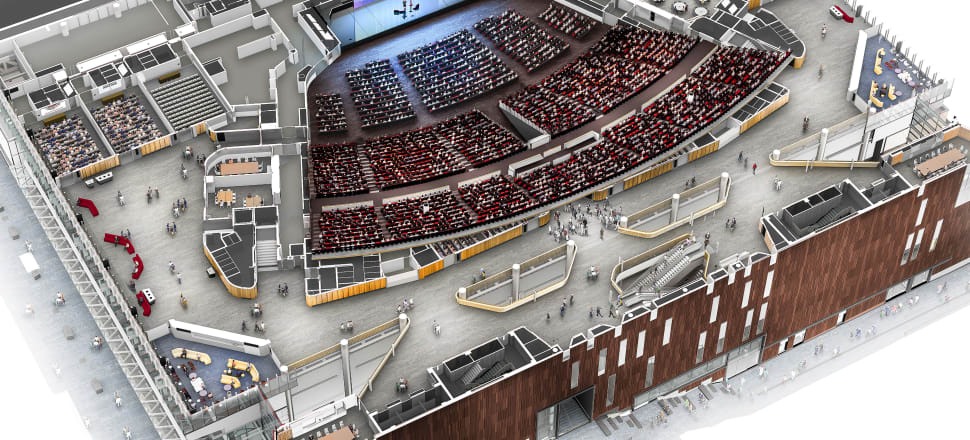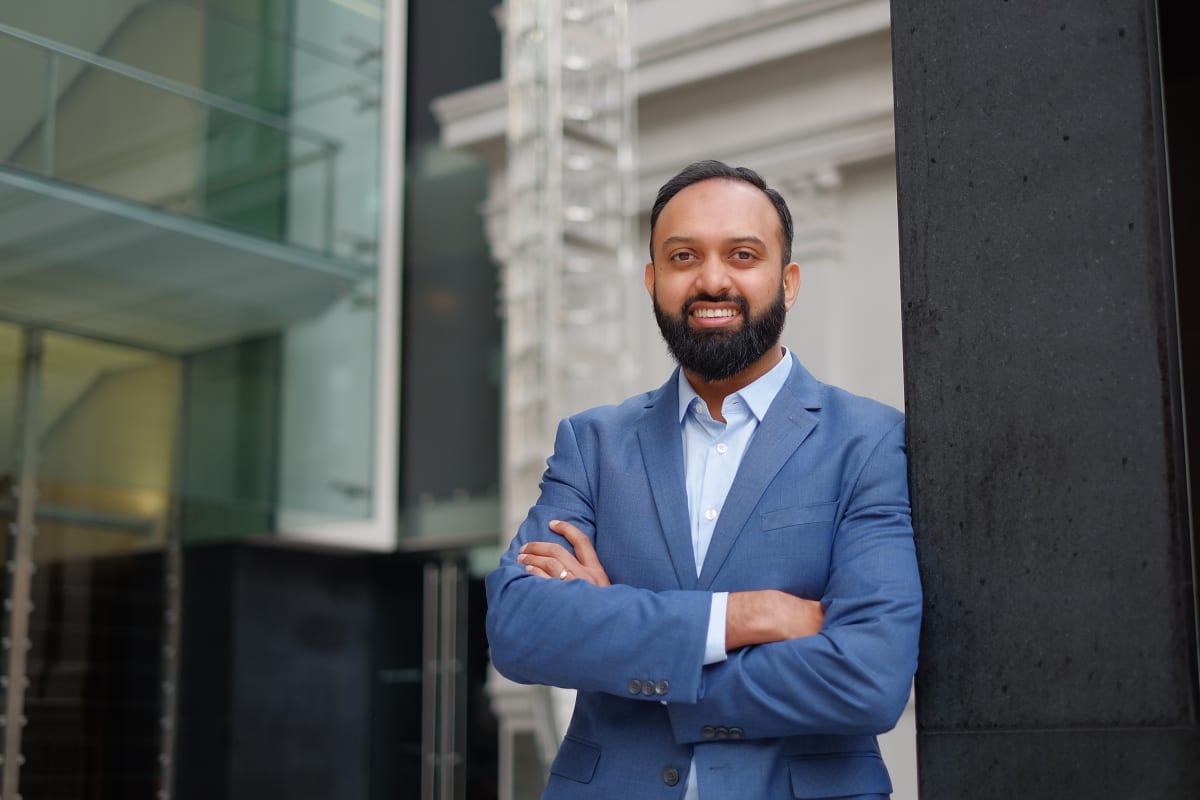
More than 100 business events have been locked down for a city out of lockdown - but what’s the new mayor's plan for the organisation behind them?
The conference centres of New Zealand have been left relatively empty over the past few years of border closures and pandemic uncertainty. But as the New Zealand International Convention Centre nears completion, business events are expected to bring $75.5 million into Auckland’s economy over the next several years.
More than 100 events have been bid for and won by the council-controlled organisation Tātaki Auckland Unlimited during the 2021 to 2022 period, with 54 still to take place between now and 2028.
It’s a big return to a game that brings big-spending tourists through Auckland en masse and gives the city valuable publicity. However, it’s a project driven by an organisation that has been in the sights of new mayor Wayne Brown.
Brown has called Tātaki Auckland Unlimited, the group responsible for management and investment in Auckland’s events, stadiums, cultural assets and economic development, a “travel agency” and “a sprawling empire”.
The controversy exposes some widely differing views on the role of local and central government when it comes to the sometimes intangible or difficult to measure benefits of motivating tourism and publicity.
Professor Robert MacCulloch of the University of Auckland’s school of economics said it was a debate in need of proper scientific cost-benefit analysis - something he sees as lacking from power-brokers on both the left and right in recent history.
“Private businesses can weigh up if the benefits are bigger than the costs, but as soon as the government is involved there may be bigger benefits than just private benefits,” he said. “It may be tourism or publicity for the country ... you do the cost-benefit analysis because if the council is involved, they are spending [ratepayers’] money on it.”
Although general rates keep the organisation going, Tātaki Auckland Unlimited is largely funded through commercial revenue from stadiums, cultural venues and user charges at the Auckland Zoo and the Auckland Art Gallery.
Within the organisation is a specialist unit called Auckland Convention Bureau, led by head of business events Ken Pereira.
He said the past few years of shut borders called for innovation, shifting many conferences into hybrid format and changing the scale and date of others, such as the International Working Group on Women in Sport. Initially scheduled for May of 2021, it is now planned for next month at the Aotea Centre.
Pereira said the organisation was looking at ways to lean less on the Auckland ratepayer.
“With the goal of minimising the dependency on Auckland’s ratepayers, Tātaki Auckland Unlimited is exploring international best practice funding models, including with the private sector,” he said. “This will support business events the organisation invests in and attracts to Tāmaki Makaurau.”
Pereira said the successful bids showed Auckland’s global profile as a business events destination, and the work that went into securing world-class events for the region.
“Our team has worked incredibly hard to research new opportunities, bid for international conferences, and secure business events for Auckland,” he said.

Auckland’s status as the place to host a conference is backed up by overseas voices, with the city having just been awarded Oceania’s best destination for meetings, incentives, conferences and exhibitions (MICE) for the third year running at the World MICE Awards 2022.
The accolade follows Auckland being named the number one city to visit in Lonely Planet’s Best in Travel 2022. They’re both acknowledgements that bode well for Tātaki Auckland Unlimited’s ability to get business events, especially when coupled with the convention centre at SkyCity expected to finish construction within the next two years.
“With the New Zealand International Convention Centre coming online, a newly refurbished Aotea Centre and the Viaduct Events Centre available from 2023, the future is exciting for Auckland conferences and events,” Pereira said.
While it's understood a backlog of events that weren't able to go ahead during the early days of the pandemic are now tenable, a bevy of new venues across the country opening over the next few years may put New Zealand in a prime position to lock down new ones.
Te Pae Convention Centre in Christchurch recently opened and Tākina Event Centre in Wellington is set to finish construction around the middle of next year. Fresh sustainably built venues offer bidding power New Zealand may not always be able to muster from a purely financial point of view.
But whether the novelty of the new venues is enough to re-secure New Zealand's pipeline of business events remains to be seen.
In Auckland, even though the convention centre is still a construction site, the business groups have already put up their hands to bring their meetings and conferences down under.
Big conferences already on the way include the Federation of Asia Oceania Pest Management Associations summit, which will bring 2500 people to the new convention centre in 2026 and the 2022 Robot Learning conference.
Pereira said business events delivered high value visitors to the region: on average, an international delegate will spend just over $2000, a domestic delegate a little over $1000 and a local delegate $600.
MBIE research from before the pandemic found convention attendees tend to spend 72 percent more than the average international visitor. That money isn't restricted to Auckland either, with the average convention attendee found to spend 1.7 nights in places outside of their urban destination.
A significant portion of this spend goes to industry partners, with the convention bureau making 1794 referrals in the past year, an 18 percent increase on the year before.
Pereira said the bureau referred enquiries for private dining rooms or tourism experiences to private operators, while managing a membership programme with larger hotels, venues and conference organisers.
The economic benefit is also tracked to ancillary businesses in the community - be it the local suit hire gaining a busy day in anticipation of black-tie events or hairdressers in the surrounding area.
Pereira said activity like this was an important stimulus for the region’s economy, as well as business events providing opportunities for knowledge sharing, research collaborations, networking and investment in the city from outside.
These are some of the harder to quantify benefits MacCulloch said must be wrangled into the formula of a cost-benefit analysis.
“You need to faithfully do a cost-benefit analysis before making a decision."
In the past, groups within Auckland Council had produced impact analyses on decisions like hosting events that weren’t always put into straight numbers, he said.
“They talked the language of costs and benefits but on the ground they only had one or two people on the entire council who were able to do the analysis.
“The treasury do require local councils and departments to do impact analysis, but it’s often a bit vague; it could be quite qualitative.”
And as the new mayor requests Tātaki Auckland Unlimited “refocus their priorities”, it’s unclear at this stage exactly how its role in the future may change when it comes to attracting business events and their entourage of big spenders.
Nevertheless, with downtown boons like the City Rail Link and the convention centre at Sky City on their way towards ribbon-cutting, Auckland stands to appear more desirable as a convention destination in future regardless of who is at the steering wheel.







